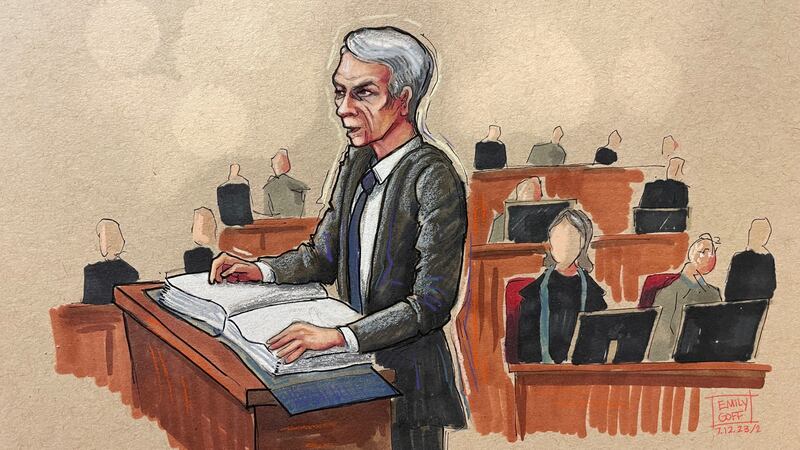PITTSBURGH — The penalty phase in the trial against Robert Bowers, the man convicted of killing 11 people inside a Squirrel Hill synagogue in 2018, is starting to come to an end.
PITTSBURGH SYNAGOGUE SHOOTING TRIAL: FULL COVERAGE ⇒
The defense is trying to persuade a jury to spare his life, while prosecutors are seeking a death sentence.
>>> Tree of Life, community react to guilty verdict in Pittsburgh synagogue shooting trial
Both sides delivered their closing arguments Wednesday.
If you or someone you know is experiencing mental health effects from the trial, go to 1027healingpartnership.org to find help resources. As always, call 911 to report threats.
- Phone: 412-697-3534
- Email: info@1027HealingPartnership.org
- Web: 1027healingpartnership.org
Soo Song with the prosecution was up first, expressing to the jury that they already have all the evidence to know that Bowers’ crimes make him eligible for death.
“He fired his rifle more than 70 times inside the Tree of Life synagogue. Every time he was pulling the trigger, he was proving his intent to kill,” Song said.
Intent is one of the big factors the government had to prove.
Song told the jury the answer is simple, saying he did have the intent by his actions and cruelty displayed inside that synagogue. She closed out saying, “Members of the jury, in the interest of justice, find this defendant eligible for the most severe punishment…a sentence of death. ..for killing Joyce Feinberg...”
Reading off each of the other ten victims’ names and ending with “…and for killing each of them intentionally.”
Following Song, defense attorney Michael Burt spent 90 minutes detailing all of Bowers’ medical evaluations and doctors’ conclusions.
“We acknowledge the suffering and pain these families have gone through. We do not question the obvious pain and suffering that was inflicted on them. The real issue has to do with the brain and what we can say about Mr. Bower’s brain,” Burt said.
In the end, he hammered home the white matter found on Bowers’ brain, saying his mental illness made him incapable of forming an intent to kill.
“It’s real evidence. Evidence you can see with your own eyes. With the help of medical experts, it helps you decide if he had a brain defect that affected his behavior,” Burt said.
The jury began deliberations Wednesday afternoon and wrapped up about 40 minutes in. Deliberations will resume Thursday morning.
Download the FREE WPXI News app for breaking news alerts.
Follow Channel 11 News on Facebook and Twitter. | Watch WPXI NOW
TRENDING NOW:
©2023 Cox Media Group








